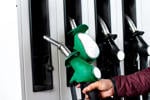The most obvious ways to reduce fuel consumption for any vehicle is to reduce speeding and eliminate poor driving habits, says Fleetmatics Europe.
According to the Energy Saving Trust (EST), which has been offering Smarter Driving tips to fleet drivers for several years, by applying simple driving tactics, typical improvements in fuel consumption of up to 15% can be achieved.
Fleetmatics Europe, a provider of fleet management solutions for small and medium-sized businesses delivered as software-as-a-service (SaaS), reports that, while most standard vehicle tracking solutions can provide accurate speed information about each vehicle tracked, the best-in-class fleet management systems also include alerts that will, for example, notify the fleet owner when a vehicle exceeds a set speed threshold
Although each vehicle reaches its optimal fuel economy at a different speed (or range of speeds), fuel mileage usually decreases rapidly at speeds above 60 mph.
According to advice on the AA’s (Automobile Association’s) website, travelling on a motorway at 80–85mph, rather than 70mph, can increase fuel consumption by 25% or more – this can translate to hundreds of pounds worth of wasted fuel over a month.
Richard Brooks, director of marketing for Fleetmatics Europe, said: “Our V9.0 software introduces a Driving Style tool; this, through use of an accelerometer embedded in the hardware, monitors rapid acceleration, fast cornering and hard braking styles – key indicators for recognising aggressive or unsafe driving.”
Another important aspect to using this tool is that, should there ever be an incident, the Driving Style data can be retrieved along with location, time and speed for use as evidence to the authorities, such as the insurance agency and police.
Less well documented, but perhaps as significant is excessive idling, which is a tremendous cause of wasteful fuel consumption.
Anytime a vehicle is idling, it is realising zero miles per gallon, reducing its average fuel economy.
According to the Ford Motor Company, every hour that a vehicle is idling is the equivalent of approximately 25 miles of driving.
Contrary to popular belief, Transport for London (TfL) tests show that vehicle engines can be switched on and off more than 100 times an hour with no discernible loss of performance, and restarting an engine after a minute or longer uses less fuel and causes less pollution than if it is idling.
But it’s not just smarter driving behaviour that can help fleet owners save fuel; it is a known fact that those vehicles that receive regular maintenance run more efficiently and use less fuel than other vehicles.
Automated alerts can be set up for each vehicle on the fleet management system to notify the fleet owner when a service is due; these alerts can be based upon calendar time, engine-on time, or mileage.
Fleet management systems also allow owners to remotely monitor such things as motor oil life, engine fault codes and emissions control system status and to be notified should there be a problem.
Fleet management systems also allow dispatchers to know the precise location of every vehicle; they can manage routing and dispatching more effectively.
For example, Best Electrical, a privately owned, family run electrical contractor based in Stevenage, Hertfordshire that averages 250 jobs per week with eight vehicles, said that by installing the Fleetmatics vehicle management system the company was able to respond faster to emergency calls by dispatching engineers that were closer or could get to the job site first.
As well as improving response times and completing more jobs per day, better dispatching translates to fewer miles travelled and less fuel being used, says Fleetmatics Europe.
It told Fleet News that as Government regulations become more stringent, regarding acceptable greenhouse gas emissions, and pressures from an increasingly competitive and environmentally conscious free-market economy grow, it is time for all businesses to take a closer look at their fleet performance and operating practices.
“Once baselines have been established, realistic goals can be set, and results can be easily measured by a reliable fleet management system,” concluded Brooks.

















Login to comment
Comments
No comments have been made yet.